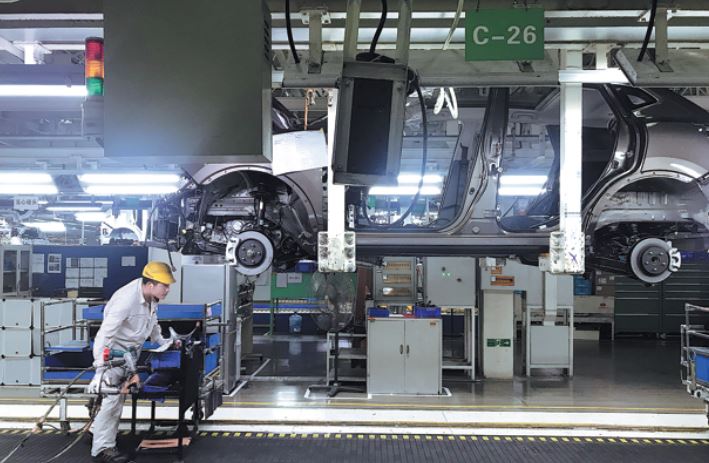FTZ reforms to stimulate trade flows


China (Liaoning) Pilot Free Trade Zone will undertake more market-oriented reforms to reinvigorate the old industrial heartland in the country's northeast region and deepen trade ties with economies in Northeast Asia and Europe, said officials.
As the core function of the FTZ is to stimulate domestic and foreign trade, as well as attract foreign direct investment, the government will come up with more flexible policies to not only benefit State-owned enterprises and giant foreign companies, but also ensure small and medium-sized companies from all countries can profit from this platform, said Zhang Hongguang, deputy director of Dalian area of the Liaoning FTZ.
Thanks to the FTZ's policies, the government found that technology companies notablely contributed to Liaoning's growth, with more than 1,000 new high-tech companies established last year, including Huawei's artificial intelligence industry base and JD's digital economy industrial park.
She said Intel Semiconductor (Dalian) Ltd is one of the global companies that has benefited enormously from innovation and reforms in the FTZ.
Currently, the company needs only about two hours to get customs approval to transport goods to its plant in Dalian from Hong Kong, on the basis of an immediate and all-weather customs clearance service provided by the FTZ.
By the end of 2018, a total of 47,000 firms, including over 1,300 foreign companies, had registered in the Liaoning FTZ since its establishment, with total registered capital of about 643.8 billion yuan ($91.17 billion), according to statistics from the FTZ's administrative office.
Liaoning saw the added value of high-tech manufacturing jump 19.8 percent year-on-year in 2018, and investment rose by 8.2 percent, data from Liaoning Provincial Bureau of Statistics show.
The province's output of new energy vehicles expanded 4.7 times and the production volume of industrial robots rose by 18 percent year-on-year last year, while output of fiber optic cables surged by 12.5 percent.
As an experimental zone for comprehensive reform, the FTZs in China combine openness and innovation, a risk stress-testing zone for the open economy system, and a pilot area for improving the government's function, while supporting the development of the Belt and Road Initiative.
He Rui, deputy director-general of Liaoning's Provincial Commerce Department, said the Liaoning FTZ will enhance its ongoing trade contacts with Russia, Japan and South Korea, and also advance its cooperation with Central and Eastern European countries.
Unlike the development modes of Zhejiang and Guangdong FTZs, he said the Liaoning FTZ is expected to pilot major reform measures to stimulate the cross-border flow of human resources, goods, information and capital, therefore helping Northeast China improve its market economy system.
Because goods shipped to Dalian port can exit China on freight trains via Manzhouli, which borders Russia, before they are unloaded to meet consumers in Europe, products from Japan, South Korea and Chinese coastal cities can be transported more efficiently to the Russian and European markets by way of Dalian, said Xia Ting, a business development unit manager at Liaoning Port Group.
"A new route linking Dalian and Slovakia has been planned to relieve the unloading pressure in Poland, a major destination of China-Europe freight trains," said Sun Shimeng, head of operations at CRIntermodal Dalian Terminal.
With Liaoning's proximity to the Pacific Ocean and countries in Northeast Asia, Northeast China can be a pivotal location to promote the BRI development, said Xue Rongjiu, deputy director of the China Society for WTO Studies.
"It can generate attractive business growth points to the regional economy that will support transportation and logistics, as well as bring in investment in the services sector," he added.
Established in 2017, the Liaoning FTZ consists of three parts - Dalian, Shenyang and Yingkou. They focus on port logistics and financial business; equipment manufacturing, auto and parts; and e-commerce and information industry respectively.




































